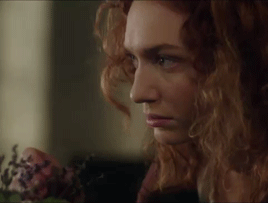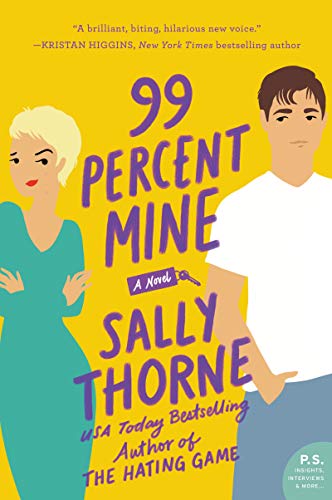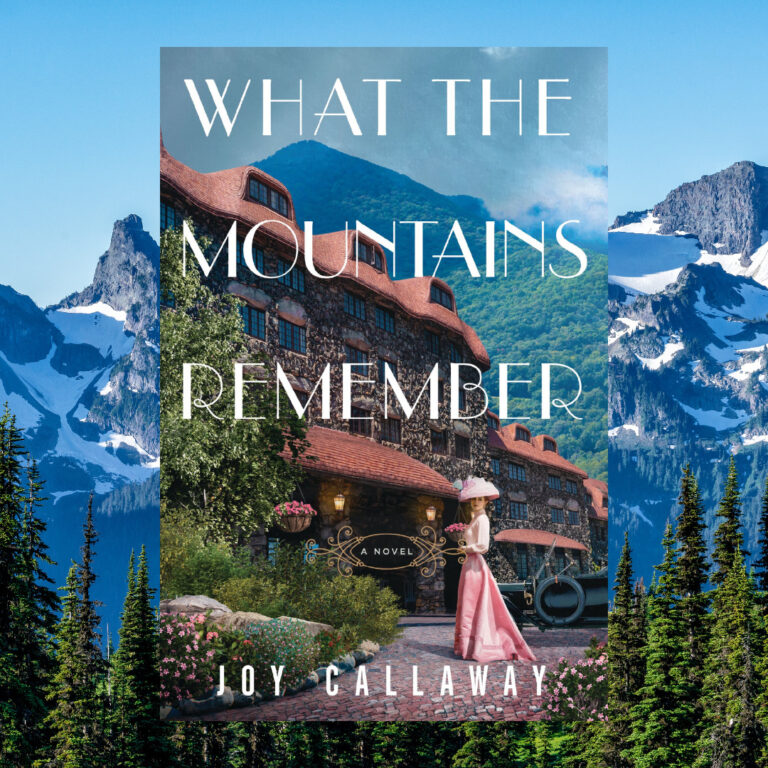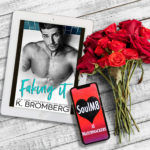A couple of months ago, I tweeted a simple photo that, as it happens, has an extremely potent connection to my smell loving romance writer brain:
behind the romance writing: literally have to stop myself from making every one of my heroes smell like some version of this gd soap pic.twitter.com/kHfmbv4wmw
— Kate Clayborn (@kateclayborn) October 24, 2018
Yeah, that’s right. It’s a bar of Irish Spring soap, otherwise known to me as the best smelling soap in the world (imagine my utter shock and chagrin to read that not everyone agrees with this). If someone asked me what Irish Spring smells like, I would not be able to articulate a single word that could be readily identified with a specific fragrance. Clover? A waterfall? Pine needles? I have no goddamn idea. Irish Spring smells like things I like. Irish Spring smells like my husband. Irish Spring smells like…man.
If you’re a longtime romance reader, you might recognize that phrase, because “smells like man” is ubiquitous in the genre—in M/F romances in particular, if a heroine meets a man and this phrase appears, you have almost certainly just met your novel’s hero. And while it may be tempting to think that phrasing like this is far too unspecific to be meaningful, I’ve got a hunch that these kinds of lines—and the phrases that often come after it—actually do quite a lot of work for readers of romance. These descriptors can communicate to us interesting details not only about specific characters, but about gender and culture more generally.

That humans rely on scent as a means by which we navigate the world, particularly in sexual contexts, is a familiar story, documented in countless studies that show up with some regularity in our news feeds (one favorite from a few years ago? This one, showing that men experience a drop in sexual arousal when they smell tears). The degree to which these studies rely on reliable science varies, but certainly it’s been well documented—and for many of us, confirmed by personal experience—that we have some definite lizard-brain action happening when we encounter a smell that works for us. In our day to day lives, most of us probably aren’t standing around getting a whiff of something good and then spending the next few minutes parsing its various notes, and in some ways, this is why the simplicity of “smells like man” works. When I read this phrase in a romance, my lizard brain is probably screaming, MUST BE IRISH SPRING TIME! But maybe you’re thinking about sandalwood or tobacco leaves or, god forbid, Axe Body Spray (I don’t know your life!).
That “smells like man” is often used early in a book—as a signal that we should recognize a character as the primary love interest—is a compelling enough appeal to the ways in which we’re thought to engage scent as a marker of attraction. But the story of smell in a romance rarely ends there, and it’s those complementary phrases—the ones that describe for us what “man” or sometimes “woman” smells like—that invite us to think about how our noses are being asked to participate in more subtle cultural work the romance might be doing.
As many romance readers have noted, what counts as “smelling like man” varies, but it doesn’t vary too much (for a fun tracking device, check out @RomanceSmells on twitter). The outdoors feature strongly, usually with something like pine, cedar, mountain air, sunshine, or horses (but not in a bad way!). Outdoor smells are often accompanied by the smell of sweat, but it’s clean sweat, not like, gym socks sweat. Alcohol, too, makes frequent appearances, but it appears there’s a right and a wrong kind: whiskey, sure, but rarely beer. If clothing fabric gets mentioned, it’s nearly always going to be one of two: cotton, or leather.

Certainly these smells can be cues to the character we’re learning about—if he’s a cowboy, he ought to smell a bit like a horse, right? But are these smells also cues to what our culture tells us about how men should be? Strength features strongly in these olfactory descriptions, but so does work—especially work that is linked to physical labor with a high degree of immediate, tangible use value. The whiskey and leather strain of man smells seems particularly connected to ideas about wealth, and shows up with great frequency for characters whose work may not be physically demanding, but is exceptionally rewarding in a financial sense.
We can contrast this with the scents we often find for women characters. There’s no escaping the outdoors, but women are less likely to be linked to trees than they are to the smaller, more delicate specimens out there: flowers or gentle herbs. As frequent as alcohol is in describing heroes, it is damned rare in describing heroines, who are more likely to be linked to food, but only certain kinds of food: strawberries or other fruits, cake or other baked goods. If men seem to be repeatedly linked to strength and work and wealth, women seem to be linked, again and again, to delicacy and ornamentation and comfort and nourishment.

I don’t think it’s any great surprise that the words we use to describe scent bear hallmarks of our cultural notions of gender (I refer you to that famous nursery rhyme “What Are Little Boys Made Of?”). I also don’t think that any of these descriptors are bad in and of themselves, particularly as scent is personal (and also cultural in other ways: what some readers will recognize immediately as an “attractive” smell may not necessarily have the same resonance to other readers). But being aware of the ways in which we (including me!) tighten the strictures around how we describe and experience scent is another way for us to consider how we participate in various types of gender essentialism—how we assert that there are only narrow categories of gender, with fairly narrow demonstrations of those categories available to us.
Using scent as a motif in a romance is powerful because scent can be powerful in real life. But scent can also be powerfully original, and memorable uses of it in romance are a delight. In Sally Thorne’s upcoming 99 Percent Mine (out January 29), our heroine, Darcy Barrett, inhales great lungfuls of Tom Valeska, who smells to her like “birthday candles,” a descriptor that manages to capture something essential about what he meant to her childhood and what he means to her today. And Tom, too, experiences scent as a powerful signal of his feelings, as he describes how he learned to recognize love from the way Darcy’s dad would always lean in to smell his wife:
Your mom was making me a sandwich, and your dad comes up behind her and kinda…smells her neck. […] She obviously smells so good to him.
I’ll let you wait for the book to find out why this matters so much to Tom (prepare to swoon), but suffice it to say, in 99 Percent Mine, scent is written as one of the special qualities that draws Tom and Darcy together, a thread of the romance that feels special and unique and revealing.
Obviously, my devoted fondness to a drugstore soap smell proves I’m no complex connoisseur of scent in my every day life. So even though my brain will likely always auto-correct “smells like man” to Irish Spring, what I love about romance is the way it invites me to supplement my own experience—even my olfactory experience—with the rich descriptions and connections authors provide. And when those descriptions challenge me to consider something other than pine needles or cake batter, I find I’m utterly charmed.
So, fellow romance readers: next time you come across an invitation to use your nose when reading, I ask you to take a big whiff. You’re getting a lot more than man out of that smell, as it turns out.













